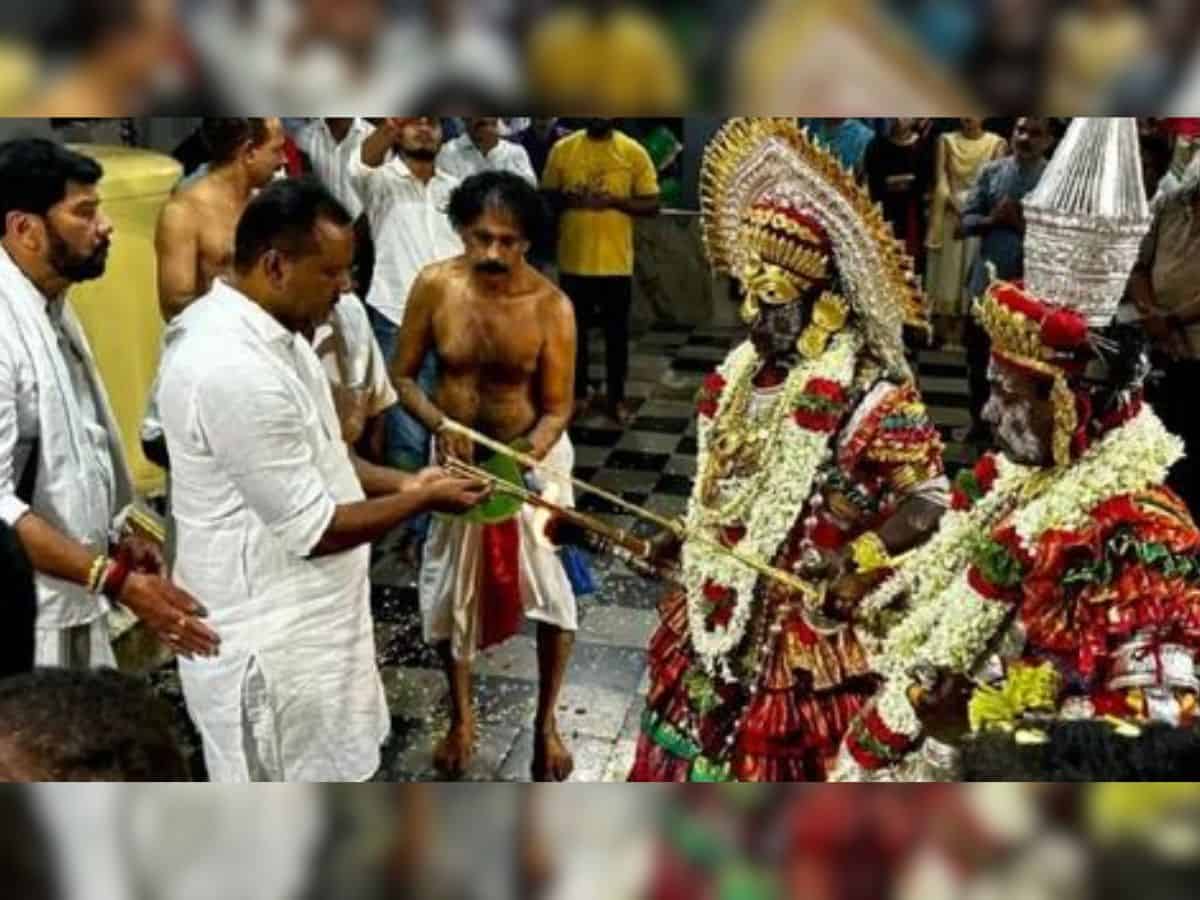
Mangaluru: In a symbolic demonstration of cultural harmony, UT Khader, the Karnataka state Assembly Speaker, participated in the Harake Kola ceremony of Karnika Deities at Sri Kshetra Panoli Bail in Bantwala Taluk, Dakshina Kannada District.
The religious event centred around the Karnika Deities Kallurti Kalkuda, saw the coming together of diverse faiths, with UT Khader seeking blessings alongside Mudipu Block Congress President Prashant Kajava on Sunday.
However, this inclusive occasion faced criticism as prominent Muslim religious leader Salethur Faizi expressed reservations about UT Khader’s involvement in the Harake Kola of Kallurti Kalkuda Deities.
Faizi, in a social media post, voiced concerns regarding the potential negative impact on the Muslim community caused by the act of praying to idols on a religious platform.
Faizi underscored the significance of viewing UT Khader primarily as a politician, cautioning against labelling him as a religious leader. He emphasized that while respecting Khader’s personal freedom to practice his faith, designating him as a religious figure might imply endorsement of his idol worship, which could conflict with the beliefs of the Muslim community.
Further intensifying the controversy, Salethur Faizi raised questions about the appropriateness of Ulemas (Islamic scholars) honouring UT Khader, suggesting that such recognition might inadvertently support practices conflicting with Islamic principles.
“In Islam, any physical depiction of the divine is prohibited. Let Khader clarify whether his actions are acceptable within his Muslim identity. He should present himself as a Muslim first and then as a leader of a community and a political party,” Salethur Faizi told Siasat.com. He further recommended that Muslim clerics refrain from inviting Khader to religious programs in the future.
The disagreement took a personal turn as Faizi delved into Khader’s religious practices, urging Muslims to view him solely as a politician rather than a religious leader. Faizi maintained that Khader’s devotion to deities like Koragajja, Kallurti, and Panjurli should be considered his personal freedom, protected by the constitutional rights of all citizens.
“I don’t pay heed to individuals who post random thoughts on social media. There was a genuine issue in my attendance at the Bhoota Kola in my constituency,” Speaker UT Khader told Siasat.com.
He explained that the elders of the society had invited him as a leader committed to the secular democratic process and as a citizen of India who believes in secularism. Khader attended the Bhoota Kola event to honour this invitation.
It is noteworthy that a piece of land owned by UT Khader at Puanacha Pariyaltadka near Vitla in Dakshina Kannada district was initially owned by a Hindu Dalwai family. The land, where Naga worship once occurred, posed complexities when Khader’s family acquired it through the Land Reforms Act.
To resolve the issue, the Dalwai family requested Khader to sell 10 cents of the land, enabling them to perform their rituals without hindrance. In a magnanimous gesture, UT Khader not only agreed but doubled the offering, providing a total of 20 cents of land free of cost to the Dalwai family, symbolizing unity and communal harmony in the region.

